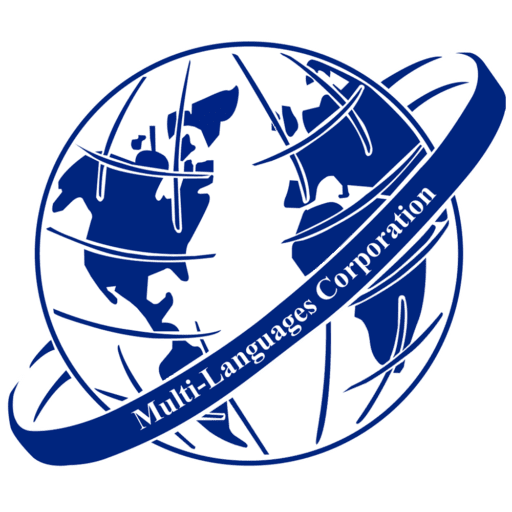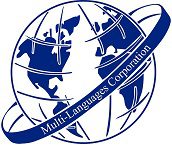INTERPRETER SKILLS & COMPETENCIES
INTERPRETER SKILLS & COMPETENCIES
High Quality Translation and Interpretation Services
Interpreter Skills and Competencies
Linguistic Competence
The interpreter’s linguistic competence includes the ability to comprehend the source language and apply this knowledge to render the message as accurately as possible in the target language.
The interpreter shall:
• Have an in depth knowledge and understanding of his/her working languages and the required range of language registers
• Have knowledge of subject areas and relevant terminology
Must be able to deal with obscenities and render them accordingly in the target language. The interpreter must also be able to understand cultural stigmas without assuming the role of advocate or cultural broker.
Interpreter Skills and Competencies
Interpreting Competence
The interpreter’s interpreting competence comprises the ability to interpret a message from one language to the other in the applicable mode. It includes the ability to assess and comprehend the original message and render it in the target language without omissions, additions or distortions. It also includes the knowledge/awareness of the interpreter’s own role in the interpreting encounter.
Interpreting skills
The interpreter shall:
• Have active listening skills and strive to improve them through self-training
• Have good memory retention skills
• Be able to take notes during the interpretation assignment to ensure accuracy of the information given
• Be able to mentally transpose and verbalize into the target language
Interpersonal skills
The Interpreter shall:
• Have strong communication skills
• Be polite, respectful and tactful
• Be able to relate well to people
• Have good judgment
Must be punctual
Must be able to work with limited supervision
Must be able to remain neutral before, during and after every interpretation assignment
Must be organized
Must be articulate
Must be assertive in his/her work without being overconfident
Must be able to cope with stress during and after the assignment
Must be a dedicated professional
Research and Technical Competence
The interpreter’s research competence includes the ability to efficiently acquire the additional linguistic and specialized knowledge necessary to interpret in specialized cases. Research competence also requires experience in the use of research tools and the ability to develop suitable strategies for the efficient use of the information sources available.
“The skills and competencies described above shall be demonstrated through the following:”
- Post secondary education, preferably a recognized degree of at least three years duration in translation or interpretation or a related field.b. Interpreting training/education by a recognized academic institution.c. Successful completion of a Language proficiency test (such as CILISAT or ILSAT in Ontario).d. Documented experience in the field.
Taken from the National Standards Guide for Community Interpreting Services
How do interpreters demonstrate they have acquired these skills and competencies?
The Ontario Council on Community Interpreting OCCI takes very seriously the Interpreter Skills and Competencies and developed a strict accreditation system “OCCI-ACI” which includes the core accreditation as an Accredited Community Interpreter and accreditation in specializations for those experts in the medical and legal fields as well as for those who are interpreter trainers.
What is the Language Interpreter Training Program (LITP)?
An essential aspect for the professionalization of community interpreting.
With initial development beginning in 2004, the Language Interpreter Training Program is now offered at a range of post-secondary institutions in the province of Ontario. Originally launched in September 2006, this certificate program offers foundational skills development for bilingual individuals interested in working as community interpreters (medical, legal, social services, education, private sector).
The LITP was developed after a long consultative process with key stakeholders through a Curriculum Advisory Committee representing interpreters, colleges, the government, non-profit organizations, buyers of services, Interpreting Service Providers (ISPs), and the public and private sectors. This program has continued to develop and adapt to meet the needs of a changing industry.
Course Content and Objectives
The Language Interpreter Training Program is a Certificate program of 180 hours’ duration, intended to develop foundational skills required for Community Interpreters. The LITP integrates theories, principles, and concepts with practical application and skills development.
The 180-hour program offers an introduction to spoken language interpreting, skills development practice, consecutive interpreting, sight translation and note-taking, simultaneous interpreting, as well as a focus on setting-specific interpreting. It focuses on Standards of Practice and Ethical Principles as established on the Canadian National Standards for Community Interpreting Services.
The LITP is currently offered as both an on-site and on-line program:
Niagara College
Niagara
Seneca College
Toronto
Mohawk College
Hamilton
Humber College
Toronto
St. Clair College
Windsor
Conestoga College
Kitchener
At Multi-Languages, we use a tier-system of credentials. Graduates of the LITP obtain an additional point in our system. We encourage those interpreters with training at the community level to take advantage of the PLAR (Previous Learning Assessment and Recognition) system and upgrade their credentials. We also provide additional points for the OCCI-ACI credential.
The LITP is one of the greatest advances we have made in Ontario towards the professionalization process.
For additional information exclusively related to Conference Interpreting / Simultaneous Interpreting, read the downloadable version of our book “How to get it right when contracting Conference Interpreting Services” by Lola Bendana and Helen Campbell.
High Quality Translation and Interpretation Services
Interpreter Skills and Competencies
Linguistic Competence
The interpreter’s linguistic competence includes the ability to comprehend the source language and apply this knowledge to render the message as accurately as possible in the target language.
The interpreter shall:
• Have an in depth knowledge and understanding of his/her working languages and the required range of language registers
• Have knowledge of subject areas and relevant terminology
Must be able to deal with obscenities and render them accordingly in the target language. The interpreter must also be able to understand cultural stigmas without assuming the role of advocate or cultural broker.
Interpreter Skills and Competencies
Interpreting Competence
The interpreter’s interpreting competence comprises the ability to interpret a message from one language to the other in the applicable mode. It includes the ability to assess and comprehend the original message and render it in the target language without omissions, additions or distortions. It also includes the knowledge/awareness of the interpreter’s own role in the interpreting encounter.
Interpreting skills
The interpreter shall:
• Have active listening skills and strive to improve them through self-training
• Have good memory retention skills
• Be able to take notes during the interpretation assignment to ensure accuracy of the information given
• Be able to mentally transpose and verbalize into the target language
Interpersonal skills
The Interpreter shall:
• Have strong communication skills
• Be polite, respectful and tactful
• Be able to relate well to people
• Have good judgment
Must be punctual
Must be able to work with limited supervision
Must be able to remain neutral before, during and after every interpretation assignment
Must be organized
Must be articulate
Must be assertive in his/her work without being overconfident
Must be able to cope with stress during and after the assignment
Must be a dedicated professional
Research and Technical Competence
The interpreter’s research competence includes the ability to efficiently acquire the additional linguistic and specialized knowledge necessary to interpret in specialized cases. Research competence also requires experience in the use of research tools and the ability to develop suitable strategies for the efficient use of the information sources available.
“The skills and competencies described above shall be demonstrated through the following:”
- Post secondary education, preferably a recognized degree of at least three years duration in translation or interpretation or a related field.b. Interpreting training/education by a recognized academic institution.c. Successful completion of a Language proficiency test (such as CILISAT or ILSAT in Ontario).d. Documented experience in the field.
Taken from the National Standards Guide for Community Interpreting Services
How do interpreters demonstrate they have acquired these skills and competencies?
The Ontario Council on Community Interpreting OCCI takes very seriously the Interpreter Skills and Competencies and developed a strict accreditation system “OCCI-ACI” which includes the core accreditation as an Accredited Community Interpreter and accreditation in specializations for those experts in the medical and legal fields as well as for those who are interpreter trainers.
What is the Language Interpreter Training Program (LITP)?
An essential aspect for the professionalization of community interpreting.
With initial development beginning in 2004, the Language Interpreter Training Program is now offered at a range of post-secondary institutions in the province of Ontario. Originally launched in September 2006, this certificate program offers foundational skills development for bilingual individuals interested in working as community interpreters (medical, legal, social services, education, private sector).
The LITP was developed after a long consultative process with key stakeholders through a Curriculum Advisory Committee representing interpreters, colleges, the government, non-profit organizations, buyers of services, Interpreting Service Providers (ISPs), and the public and private sectors. This program has continued to develop and adapt to meet the needs of a changing industry.
Course Content and Objectives
The Language Interpreter Training Program is a Certificate program of 180 hours’ duration, intended to develop foundational skills required for Community Interpreters. The LITP integrates theories, principles, and concepts with practical application and skills development.
The 180-hour program offers an introduction to spoken language interpreting, skills development practice, consecutive interpreting, sight translation and note-taking, simultaneous interpreting, as well as a focus on setting-specific interpreting. It focuses on Standards of Practice and Ethical Principles as established on the Canadian National Standards for Community Interpreting Services.
The LITP is currently offered as both an on-site and on-line program:
Niagara College
Niagara
Seneca College
Toronto
Mohawk College
Hamilton
Humber College
Toronto
St. Clair College
Windsor
Conestoga College
Kitchener
At Multi-Languages, we use a tier-system of credentials. Graduates of the LITP obtain an additional point in our system. We encourage those interpreters with training at the community level to take advantage of the PLAR (Previous Learning Assessment and Recognition) system and upgrade their credentials. We also provide additional points for the OCCI-ACI credential.
The LITP is one of the greatest advances we have made in Ontario towards the professionalization process.
For additional information exclusively related to Conference Interpreting / Simultaneous Interpreting, read the downloadable version of our book “How to get it right when contracting Conference Interpreting Services” by Lola Bendana and Helen Campbell.

